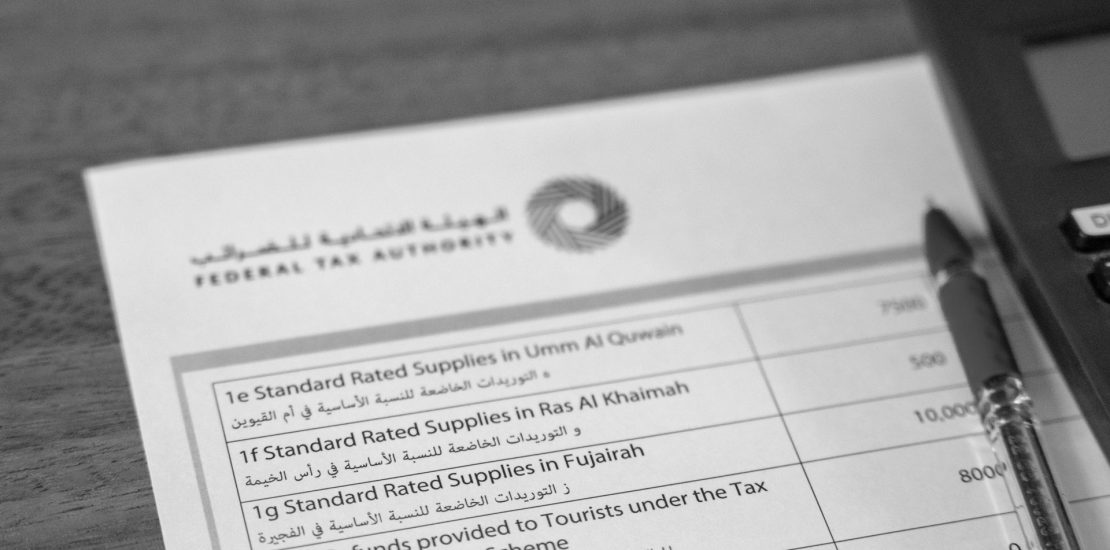UAE Investment Property Depreciation Rules
- 25.07.2025
- Posted by: Uwe Hohmann
- Categories: Tax, Dubai

The UAE Ministry of Finance has introduced new rules that may affect how businesses manage investment properties for tax purposes. Ministerial Decision No. 173 of 2025 provides a framework for depreciation adjustments on investment properties held at fair value under the UAE Corporate Tax Law.
What This Decision Covers
The new rules specifically address investment properties that businesses hold primarily to earn rental income or for capital appreciation. This includes office buildings, retail spaces, or warehouses that your company owns as investments rather than for direct operational use.
Under the previous framework, businesses using fair value accounting for these properties faced limitations in claiming depreciation for tax purposes. This decision changes that landscape by introducing an optional depreciation mechanism.
The 4% Annual Depreciation Option
Companies can now elect to claim annual depreciation of 4% on the original cost of qualifying investment properties. This applies to properties held at fair value in accordance with International Accounting Standard No. 40.
For a property with an original cost of AED 10 million, the annual depreciation deduction would be AED 400,000 (4% of the original cost). If you hold the property for only part of the tax period, the deduction gets prorated accordingly.
There is an important limitation to consider. You can only claim depreciation up to the “Tax Written Down Value” at the start of each tax period. This prevents over-depreciation and ensures the deduction does not exceed the property’s remaining depreciable value for tax purposes.
Key Requirements and Restrictions
The depreciation election is subject to specific eligibility criteria. Several conditions must be met before you can take advantage of these rules.
- Your company must prepare financial statements using accrual accounting and must have elected to recognize gains and losses on investment properties only when they are actually sold (realization basis).
- The election is all-or-nothing. If you choose to apply these depreciation rules, they must apply to all your investment properties held at fair value. You cannot pick and choose which properties qualify.
- The election is irrevocable. Once you make this choice, you are committed to it for all future periods.
Timeline for Elections
The election deadlines are particularly important to note. The rules apply to tax periods starting on or after 01.01.2025, but the election deadlines are strict.
If you currently hold investment properties, you must make the election on your tax return for the first tax period where these rules apply. Miss this deadline, and you forfeit your right to claim the depreciation entirely. For companies that do not currently hold investment properties but acquire them later, the election must be made in the tax return for the period when you first acquire an investment property.
What Happens When You Sell
The depreciation deduction includes a future recapture obligation. When you eventually dispose an investment property, you will need to “recapture” all the depreciation you claimed by adding it back to your taxable income.
This recapture applies whether you sell the property, change your accounting method from fair value to cost, or if your company becomes exempt from corporate tax. The timing of this recapture depends on the specific trigger event.
Special Considerations for Property Transfers
The rules include specific provisions for property transfers between related companies or within tax groups. These transfers generally do not trigger immediate tax consequences, but they do affect how depreciation and recapture are calculated.
There is also an anti-abuse provision. The tax authority can disallow depreciation claims on transfers between related parties if the transaction lacks valid commercial substance and appears to be primarily designed to obtain tax benefits.
Impact on Your Tax Planning
This decision opens new planning opportunities for businesses with significant investment property portfolios. The ability to claim 4% annual depreciation can provide meaningful benefits, especially for companies with substantial property holdings.
However, the election requires careful consideration. You will need to evaluate your entire investment property portfolio, consider your long-term holding strategy, and assess whether the immediate depreciation benefits outweigh the future recapture obligations.
The irrevocable nature of the election makes this decision particularly important. Once you commit to this approach, you cannot change your mind if circumstances shift or if the tax landscape evolves.
Planning Recommendations
Given the complexity and permanence of this election, we recommend working with qualified tax advisors to evaluate your specific situation. Key considerations include:
Review your current investment property portfolio and accounting methods to determine eligibility. Calculate the potential depreciation benefits across your entire portfolio rather than property by property.
Consider your long-term property strategy. If you plan to hold properties indefinitely, the depreciation benefits may be particularly valuable. If you anticipate near-term disposals, the recapture obligations might outweigh the benefits.
Ensure your financial reporting and tax compliance systems can handle the additional complexity. The rules require tracking original costs, depreciation claimed, and written-down values for each property.
TME Services - Your Complete Business Partner
Our comprehensive services are designed to support you every step of your business journey:
- Company Formation: We guide you through all aspects of setting up your company, whether in a free zone or on the mainland, ensuring you choose the best option for your business.
- Visa and Emirates ID Services: We streamline the process of securing visas and Emirates IDs for you and your employees, allowing you to focus on your business operations.
- Accounting: Our team ensures your business stays compliant with local financial regulations, which is crucial for maintaining good standing in Dubai’s business community.
- Tax: We help manage Dubai’s tax environment, ensuring your business remains compliant while optimizing your tax position.
- Business Consulting: Leveraging our deep understanding of Dubai’s market, we provide valuable insights and help you develop effective strategies to succeed.
Visit our services page to learn more about everything we do.